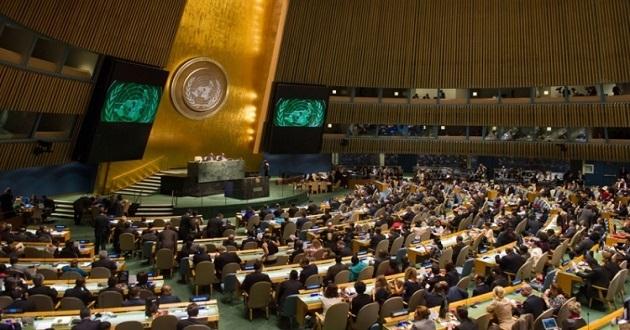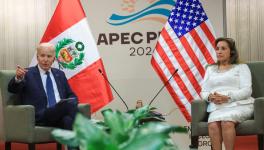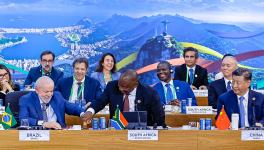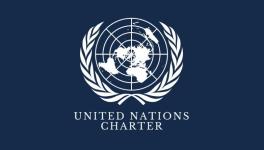Meeting on Tuberculosis to be Organised in September

Image Used For Representation Purpose Only
The United Nations General Assembly high-level meeting on Tuberculosis (TB) is to be held on September 26, 2018. The theme of the meeting is “United to end tuberculosis: an urgent global response to a global epidemic”. According to a report of Médecins Sans Frontières (MSF), “Countries negotiating the final declaration text for the first-ever UN High-level Meeting on Tuberculosis in September are being put under significant pressure to drop all references to protecting countries’ rights to take fully-legal actions to access affordable medicines for their people.”
The negotiations for deciding the text of the final declaration that will be presented in the meeting in September were expected to end on Friday. However, the report of MSF noted that the United States of America is exerting extreme pressure on the negotiators to drop all the references to the affordable medicines. The U.S. want the paragraph 19 of the text that “recognizes the importance of affordable medicines” and “urges countries to enforce intellectual property rules in ways that promote access " to be dropped. G-77 countries are facing the efforts of the U.S. in making medicines inaccessible to the people of these countries by confining the manufacturing rights of these medicines with the few.
Also Read: The Road to Access – Discussions on Medicines at 71st World Health Assembly
World Trade Organization’s (WTO) Agreement on Trade-related Aspects of Intellectual Property Rights (TRIPS) in Doha Convention 2001 enshrines flexibility in public health and safeguard with the Member States (MS). The Article 27 of TRIPS says,
“Members may exclude from patentability inventions, the prevention within their territory of the commercial exploitation of which is necessary to protect ordre public or morality, including to protect human, animal or plant life or health or to avoid serious prejudice to the environment, provided that such exclusion is not made merely because the exploitation is prohibited by their law.”
The U.S., however, expects all the developing countries- the ones who will benefit without the patents on these medicines to drop a clause in the text which talks of accessibility of medicines. This is not the first time the U.S. has shown its disagreement for the global efforts to make medicines accessible. On May 21, 2018, in the World Health Assembly (WHA), according to a report of the WHO-Watch program of People’s Health Movement (PHM), the agenda of the access to medicines was suspended by the Secretariat succumbing to the “strong statement of the United States.”
World Health Organisation (WHO) has recognised TB as one of the top 10 causes of death worldwide. According to the Organisation in 2016, 10.4 million people were diagnosed with TB, and 1.7 million died from the disease (including 0.4 million among people with HIV). Over 95% of TB deaths occur in low- and middle-income countries. It has also noted that, with India leading in the count, Indonesia, China, Philippines, Pakistan, Nigeria, and South Africa account for 64% of the total of the TB deaths.
Though according to the WHO 2016 report, the death rates due to TB in India is falling, India still remains the country with the largest effected population. The Government of India, led by Narendra Modi, envisions the elimination of the disease by 2025 while the global target is 2030. The National Strategic Plan (NSP) for TB elimination, 2017-2025 of the Revised National Tuberculosis Control Programme (RNTCP) adopts what it calls Detect-Treat-Prevent-Build (DTPB) approach.
This approach aims to “scale-up effective private provider engagement approaches” to detect; to avail “free TB drugs for all TB cases”; to “scale up air-borne infection control measures at health care facilities” to prevent; and to “Build supportive structures for surveillance, research and innovations, and a cafeteria approach of interventions based on local epidemiological situation.” According to the government, the total cost for the plan will amount to around 2.5 billion dollars. With the government spending just 1.4% of the GDP on health care, one is forced to wonder how this ambitious project of the government would work.
With the mission 2025 in hand, the High-Level Meeting on TB and its declaration matters a lot to the country. India faces a huge shortage of drugs very often. Research shows that only one out five multidrug-resistant TB patients who needed the new drugs, got access to those in 2017. On November 17, 2017, a report in The Economic Times noted that India's “dependency on charity from global drug makers is making it hard for the patients” - the Multidrug-Resistant TB (MRTB) which is prominent in the country face difficulties in being treated due to unavailability of the drugs in the country. Bedaquiline and Delamanid, for example, are lifesaving drugs for the MRTB patients, which went out of stock in 2017.
Survivors of drug resistant tuberculosis, health organisations, and the TB community in India and across the globe, on March 12, 2018, appealed to the Prime Minister of India to issue a government use compulsory license for Bedaquiline and Delamanid. The government use license for Bedaquiline and Delamanid thus issued will encourage generic production and supply to India’s TB Control Program and reserving them for public health use. As per the TRIPS agreement of WTO, countries are allowed to issue license on the patent drugs.
If the declaration, succumbing to the U.S. pressure, drops the clause which allows the countries the flexibilities, it will make it impossible for the G-77 countries to avail the drugs and thus put the patients’ lives in crisis. Appealing to all the countries to not let this happen, MSF said in its press note, “We’re appealing to all countries, including those in the Group of 77, and Brazil, Russia, India, China and South Africa, that have a high burden of TB, to urgently stand up right now against bullying that aims to keep medicines out of the hands of your people who need treatment...This upcoming TB Summit is such an important opportunity to reaffirm countries’ rights to make medicines affordable for their people – don’t waste this moment.”
Get the latest reports & analysis with people's perspective on Protests, movements & deep analytical videos, discussions of the current affairs in your Telegram app. Subscribe to NewsClick's Telegram channel & get Real-Time updates on stories, as they get published on our website.
























